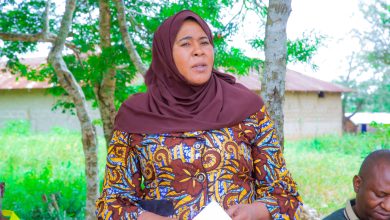‘Horti-tourism catalyst for rural growth’

ARUSHA: THE government is promoting integration of horticulture and tourism, two of the country’s most dynamic sectors as a powerful strategy to boost rural economies.
Speaking at an investors’ dialogue held over the weekend in Arusha, Permanent Secretary in the Ministry of Agriculture, Mr Gerald Mweli stressed the transformative potential of linking the multi-billiondollar horticulture and tourism industries.
His speech was delivered on his behalf by Mr Philbert Philemon from the ministry. The event was jointly organised by the Tanzania Horticultural Association (TAHA), the Tanzania Association of Tour Operators (TATO) and supported by the Embassy of the Kingdom of the Netherlands.
Mr Mweli stressed the importance of fostering strong coordination between horticultural producers and the tourism sector, which contributes approximately 3.9 billion US dollars (about 19.3tri/-) annually to Tanzania’s economy.
“Investment opportunities in horticulture, spice and organic farming and other high-value crops hold immense promise, not only for our domestic hospitality industry but also for foreign export,” he said.
He proposed the development of agro-processing zones and strategically located farms along key tourism corridors such as those in Arusha, Kilimanjaro and Manyara.
These farms, he noted, could serve dual purposes: supplying highquality fresh produce and functioning as experiential tourism attractions.
The envisioned model includes guided farm tours, roadside fresh-produce markets and culinary trails designed to enhance visitor experiences while creating rural employment opportunities.
Mr Mweli also acknowledged the longstanding support of the Netherlands Embassy in advancing Tanzania’s agricultural and tourism goals.
ALSO READ: Barley farmers to benefit from new 96bn/- malting plant in Moshi
Industry experts have highlighted the emergence of niche tourism markets, with “horti-tourism” gaining traction as a compelling contributor to rural development.
This form of tourism blends visits to vegetable farms, flower gardens and organic plots with cultural and culinary experiences.
TAHA Chief Executive Officer Dr Jacqueline Mkindi echoed the government’s message, emphasising that horticulture provides critical socio-economic benefits, including job creation, foreign exchange earnings and poverty reduction.
“Horticulture requires a diverse workforce across farm operations, tour guiding, maintenance and hospitality,” she noted.
“By providing reliable incomes, it supports poverty alleviation and raises living standards.”
Dr Mkindi also commended the government’s notable strides in strengthening both agriculture and tourism.
She pointed to ongoing investments in market access, irrigation, water infrastructure and agricultural logistics as crucial drivers of sector growth.
On the tourism front, she lauded initiatives such as The Royal Tour, spearheaded by President Samia Suluhu Hassan, which has significantly elevated Tanzania’s international visibility and boosted tourist arrivals.
“Today’s dialogue offers a strategic platform to build synergies, eliminate bottlenecks and foster stronger partnerships among investors, the government and development partners,” Dr Mkindi said.
She called for greater policy coherence, strategic alignment and collaborative action to unlock the full potential of Tanzania’s agriculture and tourism sectors.





